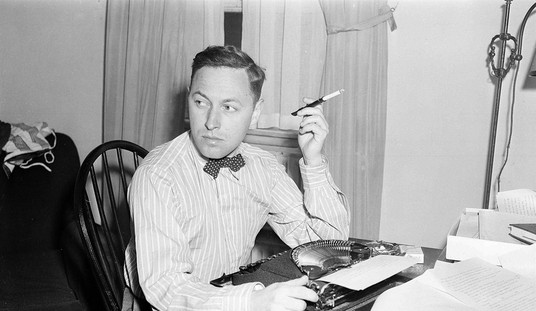Much is being made of the scoop by Madrid’s daily El Pa√≠s of the – until now top secret- transcript of a conversation between Bush and Spain’s former PM Jose Maria Aznar during their meeting in Crawford in March 2003 as the Iraq war was about to start. Editor & Publisher has a machine translation, which is quite atrocious. If you can read Spanish, the full text is here.
Several areas of interest emerge in this memo, but perhaps the most interesting is this part concerning negotiations being conducted with Saddam. Bush told Aznar:
“The Egyptians are talking with Saddam Hussein. It seems he has hinted he’d be willing to leave if he’s allowed to take 1 billion dollars and all the information on WMDs.”
All the information on WMDs? What would that imply to Bush and to Aznar? And this was coming from Egyptian Intelligence in direct communication with Saddam. Wouldn’t the normal person assume from that that Saddam had WMDs or at the very least was seriously engaged in creating them? Why would he wish to preserve this information if he didn’t have any forbidden weapons programs is something that war critics should reconcile. I guess all the people who are trumpeting this leak will now stop saying that Bush lied and mislead us on the WMD issue. Can’t have it both ways. But I won’t hold my breath.
That is the astonishing revelation in the memo, but Bush’s critics entirely ignore it.
The part being ballyhooed by them is that Bush was planning to go into Iraq under any conditions.
But even that is wrong. What the transcript doesn’t say in accurate translation, no matter the headlines, is that Bush was going to invade even if Saddam complied. What it says is that the US would be in Iraq in mid-March whether there was a second UN resolution or not, one that Bush said he would try to get by all means, which is an entirely different matter. As everybody knows, there’s certainly a debate on whether the first resolution was enough or not – many reputable experts think it was, though there’s not unanimity on this, certainly. But the issue is different.
Here’s the relevant section:
Saddam won’t change and will keep playing games. The moment of getting rid of him has arrived. That’s it. As for me, from now on I’ll try to use the softest rhetoric I can, while we look for the resolution to be approved. If some country vetoes [the resolution] we’ll go in. Saddam is not disarming. We must catch him right now. We have shown an incredible amount of patience until now. We have two weeks. In two weeks our military will be ready. I think we’ll achieve a second resolution. In the Security Council we have three African countries [Cameroon, Angola, Guinea], the Chileans, the Mexicans. I’ll talk with all of them, also with Putin, naturally. We’ll be in Baghdad at the end of March. There’s a 15% chance that by then Saddam is dead or has flown. But these possibilities won’t exist until we have shown our resolution. The Egyptians are talking with Saddam Hussein. It seems he has hinted he’d be willing to leave if he’s allowed to take 1 billion dollars and all the information on WMDs. Ghadaffi told Berlusconi that Saddam wants to leave. Mubarak tells us that in these circumstances there are big chances that he’ll get killed.
We would like to act with the mandate of the UN. If we act militarily, we’ll do with great precision and focalizing our targets to the biggest degree possible. We’ll decimate the loyal troops and the regular army will quickly know what it’s all about. … We are developing a very strong aid package. We can win without destruction. We are working already in the post-Saddam Iraq, and I think there’s a basis for a better future. Iraq has a good bureaucracy and a relatively strong civil society. It could be organized as a federation. Meanwhile we’re doing all we can to fulfill the political needs of our friends and allies.
If anything, the transcript proves precisely the opposing point that critics want to make. The conversation shows both Bush and Aznar trying to avoid war as much a possible; that they were concerned of its human toll and that they were quite confident that they would obtain a second resolution. It was the threat that they would act if there wasn’t a second resolution that made them quite confident that there would be one.
At one point Bush explicitly says: “I don’t want war. I know what wars are like. I know the death and destruction they bring. I am the one who has to comfort the mothers and wifes of the dead. Of course, for us [a diplomatic solution] would be the best one. Also, it would save 50 billion dollars.” That doesn’t sound like someone hell-bent to going to war no matter what.
Both Bush and Aznar showed they wanted to work with allies; Bush even wanted to soften the rivalry with Chirac, thinking he was being ill-advised. He even asked Aznar to send the French president his best wishes, since Aznar was going to meet him in the next days.
This is the gist of it. Clearly this is not an equivalent to the Downing Street memo, but a leak from a Zapatero administration official to a friendly, anti-Bush, anti-Aznar newspaper in the hope of embarrassing the two, and atrociously translated to make it all look worse. But I’m sorry to say they only embarrassed themselves. No matter how much you spin it, the transcript shows exactly the opposite of what critics think it says. In layman’s terms, they got hoisted by their own petard.
Full text of the top secret transcript of the conversation between US President George W. Bush and Spain’s Prime Minister Jos√© Maria Aznar at Crawford, Texas, on February 22, 2003, as printed in the Madrid daily newspaper El Pa√≠s on September 26, 2007 (translation: Jos√© Guardia)
President Bush: We are in favor of pursuing a second resolution by the Security Council, and we would like to have it quickly. We would like to announce it on Monday or Tuesday [March 24 or 25, 2003].
PM Aznar: Better on Tuesday, after the meeting of the European Union’s General Affairs Council. It’s important to keep the momentum of the EU Summit resolution [in Brussels on Monday, February 17, 2003]. We would prefer to wait until Tuesday.
Bush: It could be on Monday afternoon, considering the time difference. Next week, in any case. We envision a resolution that doesn’t contain mandatory elements, that doesn’t mention the use of force, and that states that Saddam Hussein has been unable to comply with his obligations. Such a resolution could be voted for by many. It would be similar to the one for Kosovo [on June 10, 1999].
Aznar: Would it be submitted to the Security Council before, and independently of, a parallel declaration?
Condoleezza Rice: Actually, there wouldn’t be a parallel declaration. We are thinking about a resolution that is as simple as possible, without many details about compliance that could be used by Saddam Hussein as steps not to comply. We are talking with Blix [chief of UN inspection] and others in his team about items that could be in the resolution.
Bush: Saddam won’t change and will keep playing games. The moment of getting rid of him has arrived. That’s it. As for me, from now on, I’ll try to use the most subtle rhetoric I can, while we look for the resolution to be approved. If some country vetoes [the resolution] we’ll go in. Saddam is not disarming. We must catch him right now. We have shown an incredible amount of patience until now. We have two weeks. In two weeks, our military will be ready. I think we’ll achieve a second resolution. In the Security Council, we have three African countries [Cameroon, Angola, Guinea], the Chileans, the Mexicans. I’ll talk with all of them, also with Putin, naturally. We’ll be in Baghdad at the end of March. There’s a 15% chance that Saddam will be dead by then or will have flown. But these possibilities won’t be there until we have shown our resolution. The Egyptians are talking with Saddam Hussein. It seems he has hinted he’d be willing to leave if he’s allowed to take 1 billion dollars and all the information on WMDs. Ghadaffi told Berlusconi that Saddam wants to leave. Mubarak tells us that in these circumstances there is a big chance that he’ll get killed.
We would like to act with the mandate of the UN. If we act militarily, we’ll do it with great precision and focus on our targets to as high a degree as possible. We’ll decimate the loyal troops, and the regular army will quickly know what it’s all about. We sent a very clear message to Saddam Hussein’s generals: we will treat them as war criminals. We know they have stocked big amounts of dynamite to blow up the bridges and other infrastructure, and the oil wells. We are planning to take control of those wells very soon. Also, the Saudis will help us by putting as much oil as necessary on the market. We are developing a very strong aid package. We can win without destruction. We are already working on the post-Saddam Iraq, and I think there’s a basis for a better future. Iraq has a good bureaucracy and a relatively strong civil society. It could be organized as a federation. Meanwhile we’re doing all we can to fulfill the political needs of our friends and allies.
Aznar: It’s very important to have that second resolution. It will be very different to act with or without it. It will be very advisable to have a sufficient majority in the Security Council backing that resolution. In fact, having that majority is more important than whether some country vetoes. We think that the resolution should, among other things, clearly state that Saddam Hussein has squandered his opportunity.
Bush: Yes, of course. That would be better to mention than “the necessary means.”
Aznar: Saddam Hussein hasn’t cooperated, hasn’t disarmed – we should summarize all his non-compliance and make a more elaborate message. That, for example, would allow Mexico to change [its opposition].
Bush: The resolution will be made in a way that can help you. I don’t care much about the actual content.
Aznar: We’ll send you some text.
Bush: We don’t have any text. We only have one goal: that Saddam must disarm. We can’t allow Saddam to drag his heels until the summer. After all, he has had four months in this last stage, and that’s more than enough time to disarm.
Aznar: Such text would help us to be in a position to introduce the resolution [at the Security Council], to be its co-authors, and to convince many people to sign it.
Bush: Perfect.
Aznar: I’m meeting Chirac next Wednesday [February 16]. The resolution will be circulating by now.
Bush: I think this is a great idea. Chirac knows the situation perfectly. His intelligence services have explained it all to him. The Arabs are sending Chirac a very clear message: Saddam Hussein must go. The problem is that Chirac thinks he is “Mister Arab,” and the truth is that he’s making their lives impossible. But I don’t want any rivalry with Chirac. We certainly have different points of view, but I’d like that to be all. Give him my best regards. True! The less rivalry he feels there is between us, the better it’ll be for us all.
Aznar: How will the resolution and the report by inspectors work with each other?
Rice: Actually there won’t be a report on February 28; the inspectors will submit a written report on March 1, and they won’t appear before the Security Council until March 6 or 7, 2003. We don’t have high hopes about that report. Just like on previous occasions, they’ll cover their bases. My impression is that Blix will be more negative now about the Iraqis’ intention. After they appear at the Security Council, we forecast a vote one week later. Meanwhile, the Iraqis will try to convince that they’re complying. It won’t be true and it won’t be enough, even though they’ll likely announce the destruction of some missiles.
Bush: This is like Chinese water torture. We must put an end to it.
Aznar: I agree, but it would be good to have as many people on board as possible. Be a little patient.
Bush: I’ve run out of patience. I won’t go further than mid-March.
Aznar: I’m not asking you to have infinite patience. I’m just asking you to try as hard as possible to make everything work.
Bush: Countries like Mexico, Chile, Angola and Cameroon must know that it’s US security at play and that they must act according to their friendship to us. [Chilean president Ricardo] Lagos must know that the Free Trade Agreement is pending ratification in the Senate and that a negative attitude on this issue could jeopardize that ratification. Angola is receiving funds from the Millennium Account that could also be compromised. And Putin must know that his position is endangering Russia’s relationship with the United States.
Aznar: Tony [Blair] would like to wait until March 14.
Bush: I prefer March 10. This is like the good cop, bad cop routine. I don’t mind being the bad cop and letting Blair be the good cop.
Aznar: Is it true that there’s a chance that Saddam will go into exile?
Bush: Yes, there is. There’s even a chance that he’ll be assassinated.
Aznar: An exile with some kind of guarantees?
Bush: No guarantees. He’s a thief, a terrorist, a war criminal. Compared to Saddam, Milosevic would be a Mother Teresa. When we go in, we are going to discover many more crimes, and we’ll take him to the International Criminal Court at The Hague. Saddam Hussein believes he has escaped. He thinks that France and Germany have stopped the process of his prosecution. He also thinks that last week’s anti-war demonstrations [Saturday, February 15] protect him. And he believes I’m weakened. But people around him know that things are totally different. They know their future is in exile or in a coffin. This is why it’s so important to keep the pressure up. Ghaddafi is indirectly telling us that this is the only thing that can finish him. Saddam’s only strategy is delay, delay, delay.
Aznar: Actually, the best success would be to win the game without firing a single shot when entering Baghdad.
Bush: To me, it would be the best outcome. I don’t want war. I know what war is like. I know the death and destruction they bring. I am the one who has to comfort the mothers and wives of the dead. Of course, for us [a diplomatic solution] would be the best one. Also, it would save 50 billion dollars.
Aznar: We need you to help us with our public opinion.
Bush: We will do all we can. On Wednesday, I’m going to talk about the situation in the Middle East, proposing a new peace system that you already know about, and about weapons of mass destruction, the benefits of a free society, and I’ll put Iraq’s history in a bigger context. That may help you.
Aznar: What we are doing is a very profound change for Spain and the Spanish citizens. We are changing the last 200 years of the country’s politics.
Bush: I’m guided by a historical sense of responsibility, as you are. When history judges us in a few years, I don’t want people wondering why Bush, Aznar, or Blair didn’t confront their responsibilities. At the end of the day, what people want is to enjoy freedom. A short time ago, in Romania, I was reminded of Ceaucescu’s example: it only took a woman to call him a liar for the whole regime to come crumbling down. It’s the irrepressible power of freedom. I’m convinced I’ll achieve the resolution.
Aznar: That’s better than good.
Bush: I made the decision of going to the Security Council. In spite of some internal disagreements within my administration, I told my people that we needed to work with our friends. It will be great to have a second resolution.
Aznar: The only thing that worries me about you is your optimism.
Bush: I’m optimistic because I believe I’m doing the right thing. I am at peace with myself. We have the responsibility of facing a serious threat to peace. It irks me tremendously to contemplate the insensitivity of Europeans toward the suffering that Saddam inflicts on the Iraqis. Maybe because he’s dark-skinned, distant, and Muslim, many Europeans think that all this doesn’t matter. I will never forget what Solana [European High Representative of the Common Foreign and Security Policy] asked me once: why do Americans think that Europeans are anti-Semitic and unable to confront their responsibilities? That defensive attitude is terrible. I must admit that I have a magnificent relationship with Kofi Annan.
Aznar: He shares your ethical concerns.
Bush: The more Europeans attack me, the stronger I am at home.
Aznar: We should try to bring together your strength with the support of Europeans.
Barcelona-based Jose Guardia is a senior editor for Pajamas Media. His own blog is Barcepundit









Join the conversation as a VIP Member